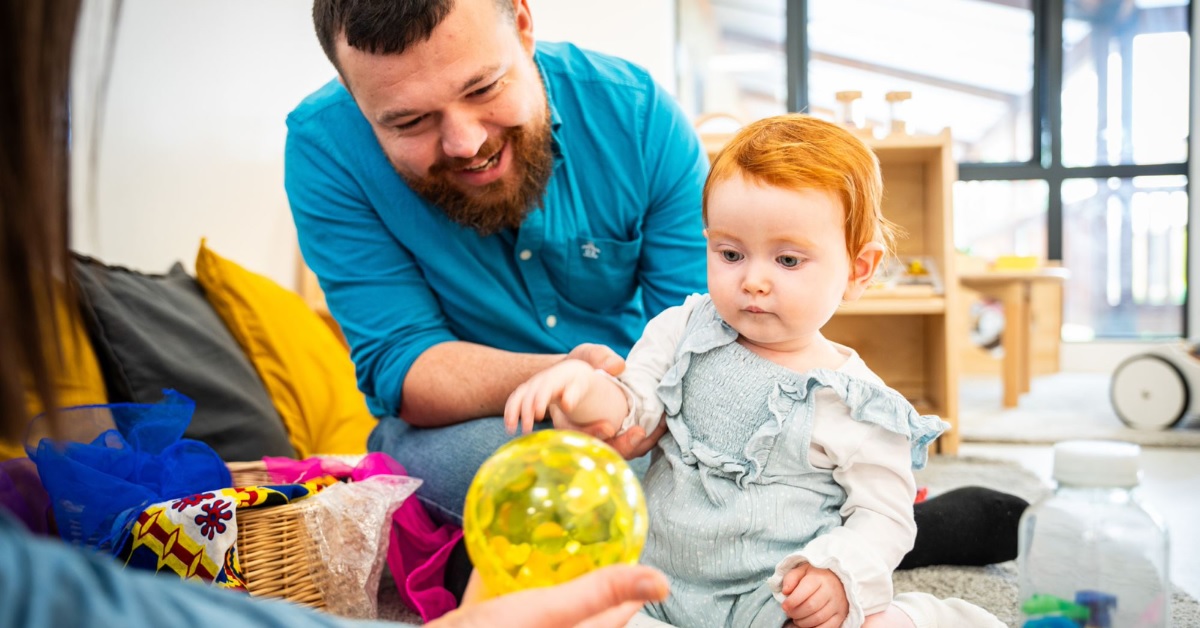Why You Should Consider Emotional Development Backed by Science

Emotional development is often regarded as a purely personal, subjective journey—one that’s influenced by individual experiences and shaped through interactions. Yet, beneath this common understanding lies an intricate web of scientific principles and psychological research that illuminate the profound impact emotional growth can have on every aspect of our lives. The idea of nurturing one’s emotional intelligence (EQ) is not just a soft, feel-good notion, but a practice rooted deeply in science. In this article, we will explore the importance of emotional development, how it can shape our behaviors, relationships, and overall mental health, and why you should consider making emotional growth an essential part of your personal development journey.
The Science Behind Emotional Development
At its core, emotional development refers to the ability to understand, express, and regulate one’s emotions in ways that are appropriate and beneficial. It’s a continuous process that starts in infancy and evolves throughout the lifespan. While many may assume that emotional growth is solely dependent on environmental factors such as upbringing and socialization, research suggests that it is equally influenced by biology and neuroscience.
The brain’s emotional centers, particularly the amygdala, prefrontal cortex, and hippocampus, play significant roles in emotional processing. The amygdala is crucial for detecting threats and triggering emotional reactions, while the prefrontal cortex is involved in higher-order functions like emotional regulation and decision-making. The hippocampus stores emotional memories, which influence how we respond to similar situations in the future. These neural structures work in tandem to shape the way we experience and react to emotions, and understanding how they function can provide valuable insights into how emotional development works.
Studies in neuroscience have shown that emotional regulation—the ability to control one’s emotional responses—is linked to better mental health outcomes, greater success in relationships, and improved cognitive functioning. In fact, emotional intelligence has been found to be a better predictor of success in life than traditional intelligence (IQ). The emotional brain, far from being a mere reactionary force, is a highly sophisticated system that can be nurtured and refined.
Emotional Development: The Key to Stronger Relationships
Humans are social creatures, and emotional development is central to building and maintaining meaningful relationships. From early childhood to adulthood, our ability to understand and respond to the emotions of others dictates the quality of our interactions. Research conducted by psychologists like Daniel Goleman, who popularized the concept of emotional intelligence, emphasizes the importance of empathy—the ability to understand and share the feelings of others—as a cornerstone of healthy relationships.
Empathy allows individuals to navigate complex social situations, offering insight into others’ perspectives and fostering connection. People with high emotional intelligence are better equipped to recognize and regulate their own emotions, while also being attuned to the emotional states of those around them. This dual awareness can lead to more compassionate, supportive relationships, whether in the workplace, at home, or among friends.
Moreover, studies indicate that individuals with strong emotional regulation skills are less likely to engage in conflict-driven behavior, such as aggression or impulsive decision-making. By practicing emotional development, one can cultivate patience, understanding, and a greater capacity for forgiveness—qualities that are indispensable for any lasting relationship.
Enhancing Mental Health Through Emotional Development
The connection between emotional well-being and mental health is profound. Research consistently demonstrates that individuals with higher emotional intelligence tend to experience lower levels of anxiety, depression, and stress. This is because emotional intelligence enables individuals to process their feelings more effectively and cope with difficult emotions in healthier ways. Instead of being overwhelmed by feelings of sadness or frustration, emotionally intelligent people are better able to manage these emotions and regain a sense of balance.
Scientific studies support the notion that emotional development can buffer against mental health challenges. For instance, emotional regulation techniques such as mindfulness meditation have been shown to reduce symptoms of depression and anxiety by teaching individuals how to become more aware of their emotions without being controlled by them. In fact, emotional regulation training has been successfully used in therapeutic settings to help individuals suffering from various mental health disorders, from borderline personality disorder to post-traumatic stress disorder (PTSD).
Furthermore, emotional development can enhance one’s resilience—the ability to bounce back from adversity. By improving one’s emotional awareness and coping strategies, individuals are better equipped to navigate life’s challenges with a sense of calm and composure. Resilience is a key factor in mental health, as it allows individuals to maintain their well-being even in the face of stressors or traumatic events.
Emotional Development and Academic or Professional Success
Though emotional development is often associated with personal growth and mental health, its impact also extends to academic and professional domains. The ability to manage emotions effectively has been shown to correlate with higher levels of motivation, perseverance, and productivity. This is particularly relevant in the workplace, where emotional intelligence can play a pivotal role in leadership and teamwork.
Leaders with high emotional intelligence are more adept at inspiring trust, fostering collaboration, and managing conflicts. They are also better at providing constructive feedback and creating an emotionally supportive environment for their team members. This not only leads to better job performance but also improves overall job satisfaction and retention.
In educational settings, emotionally intelligent students are better able to handle the pressures of academic life. Their ability to regulate stress and manage emotions allows them to focus on their studies and collaborate more effectively with peers. Teachers and school administrators who prioritize emotional development in their students can create a more conducive learning environment, where students feel safe, understood, and capable of achieving their full potential.
The Practical Steps Toward Emotional Development
So, how can you begin to nurture emotional growth in your own life? Fortunately, there are practical steps you can take to enhance your emotional intelligence and boost your overall well-being.
-
Self-awareness: The first step toward emotional development is cultivating self-awareness. Regular reflection on your emotions and reactions can help you better understand your emotional triggers and patterns. Journaling, mindfulness, and meditation are excellent tools for increasing self-awareness.
-
Emotional regulation: Learning how to regulate your emotions is essential for emotional development. This can be achieved through techniques like deep breathing, cognitive reappraisal (rethinking negative thoughts), and practicing mindfulness.
-
Empathy: Building empathy involves listening actively and without judgment, putting yourself in others’ shoes, and validating their feelings. This skill is not only crucial for relationships but also for self-compassion.
-
Social skills: Strengthen your ability to communicate effectively with others, manage conflicts constructively, and collaborate in a positive manner. These social skills are at the heart of emotional intelligence and are crucial for both personal and professional success.
Conclusion
Emotional development is far more than a trend or a passing self-help notion; it is a scientifically grounded, essential aspect of human growth that can significantly enhance the quality of our lives. Whether it’s improving relationships, boosting mental health, or excelling in professional environments, emotional intelligence is a powerful tool that can shape the course of our personal and social experiences. By understanding and nurturing emotional growth, we open the door to a more fulfilling, resilient, and connected existence. So, why not invest in emotional development? The science is clear—the rewards are vast, and the journey itself is one worth taking.






